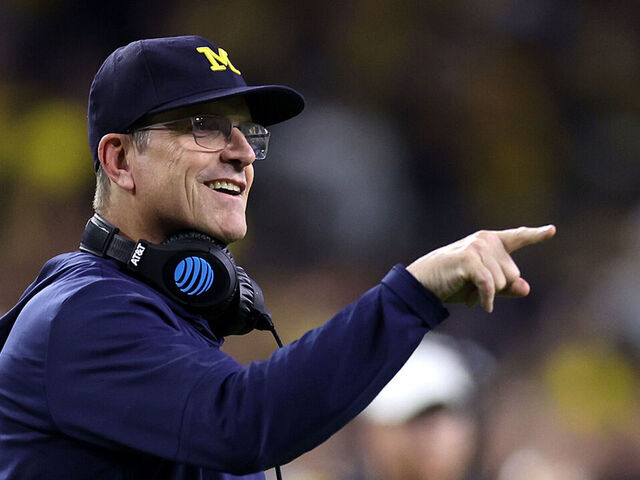
The NCAA has issued a four-year show-cause order for former Michigan coach Jim Harbaugh, effective until August 2028, due to impermissible contact with recruits and players during the COVID-19 pandemic. This decision effectively bans Harbaugh from college athletics for the duration of the order.
Harbaugh, who left Michigan to coach the Los Angeles Chargers after last season’s national championship, was found by the NCAA to have “failed to promote an atmosphere of compliance and violated head coach responsibility obligations.” The NCAA’s 48-page decision stated that Harbaugh engaged in unethical conduct and was uncooperative, denying involvement in impermissible recruiting contacts despite substantial evidence to the contrary.
The show-cause order means that if Harbaugh returns to college football within the next four years, he will face immediate punishment. This order is unrelated to the NCAA’s investigation into in-person scouting and sign-stealing allegations during Michigan’s 2023 championship season, which resulted in a three-game suspension for Harbaugh by the Big Ten Conference.
The multiple infractions could lead the NCAA to consider Michigan a repeat offender, potentially resulting in harsher penalties in the sign-stealing case. Michigan’s new head coach, Sherrone Moore, is also under investigation for allegedly violating NCAA rules related to the scouting and sign-stealing case. Moore is accused of deleting text messages with Connor Stalions, a former recruiting staffer involved in the scouting operation, around the time the investigation began.
The NCAA recommended a less severe Level 2 violation for Moore, noting that messages between Moore and Stalions were recovered and provided to the NCAA. Michigan is already on three years of probation with a fine and recruiting restrictions following a negotiated resolution in the case, which Harbaugh contested, leading to separate handling of his case.
The committee on infractions highlighted Harbaugh’s “intentional disregard” for NCAA rules, classifying his case as Level I-aggravated, resulting in a one-year suspension as part of the show-cause order. The order stipulates that any school wishing to hire Harbaugh must suspend him for the first full season, and he will be barred from athletics-related activities until the order expires.
Harbaugh’s attorney, Tom Mars, criticized the NCAA’s punishment, asserting that Harbaugh was not involved in the settlement process or aware of any agreement between the school and the NCAA. Michigan athletic director Warde Manuel stated that the school has accepted the sanctions and is focused on compliance and future integrity.
As Michigan prepares for the upcoming season, Moore aims to secure a second consecutive title, having stepped up from offensive coordinator to head coach after Harbaugh’s departure. Moore previously served as acting head coach during Harbaugh’s suspensions last season, winning all four games, including the season finale against Ohio State.
The NCAA’s investigation into Michigan’s alleged in-person scouting system, coordinated by Stalions, will be further detailed in the Netflix documentary “Sign Stealer,” set to release on August 27. Harbaugh has denied any involvement in the sign-stealing allegations.
In the recruiting case, the NCAA found Harbaugh’s responses during interviews to be vague and not credible, with evidence including a staff member’s confirmation and a recruit’s specific memory of Harbaugh ordering a hamburger for breakfast. The NCAA concluded that Harbaugh’s denials were not credible given the substantial evidence.
